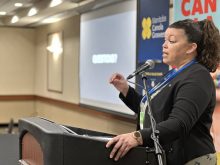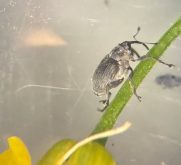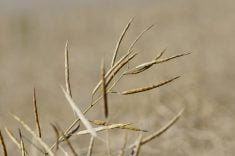About the Canola Council of Canada
The Canola Council of Canada started off as the Rapeseed Association of Canada in 1967. The current name was adopted in 1980 — six years after the first commercial “canola” was registered.
The council represents Canadian canola growers, crushers and canola variety developers.
There are 17 directors — three each representing crushers, exporters and farmers. Each group nominates its own candidates to sit on the board, said Debbie Belanger, the council’s communications manager.
The Alberta, Saskatchewan and Manitoba canola growers nominate farmers to sit on the board. They are currently Brian Chorney from East Selkirk, Man., Jody Klassen of Mayerthorpe, Alta., and Terry Youzwa of Nipawin, Sask.
Read Also

Tie vote derails canola tariff compensation resolution at MCGA
Manitoba Canola Growers Association members were split on whether to push Ottawa for compensation for losses due to Chinese tariffs.
The council also has 60 regular and affiliate members. Regular members, who pay an annual $500 fee, must be located in Canada and participate in the Canadian canola industry.
Affiliate membership covers foreigners engaged in the Canadian canola industry. They pay $250 a year.
Three directors are also nominated from the regular membership and five by the board itself.
The council is funded by a 23-cent-a-tonne checkoff collected from crushers, exporters and farmers.
It also gets funding from government and project revenue.
In 2011, 35 per cent of council revenue was budgeted for “science cluster” research. Crop utilization, market access and crop production accounted for 18, 13 and 11 per cent of spending, respectively. Twelve per cent was budgeted for salaries and benefits.















